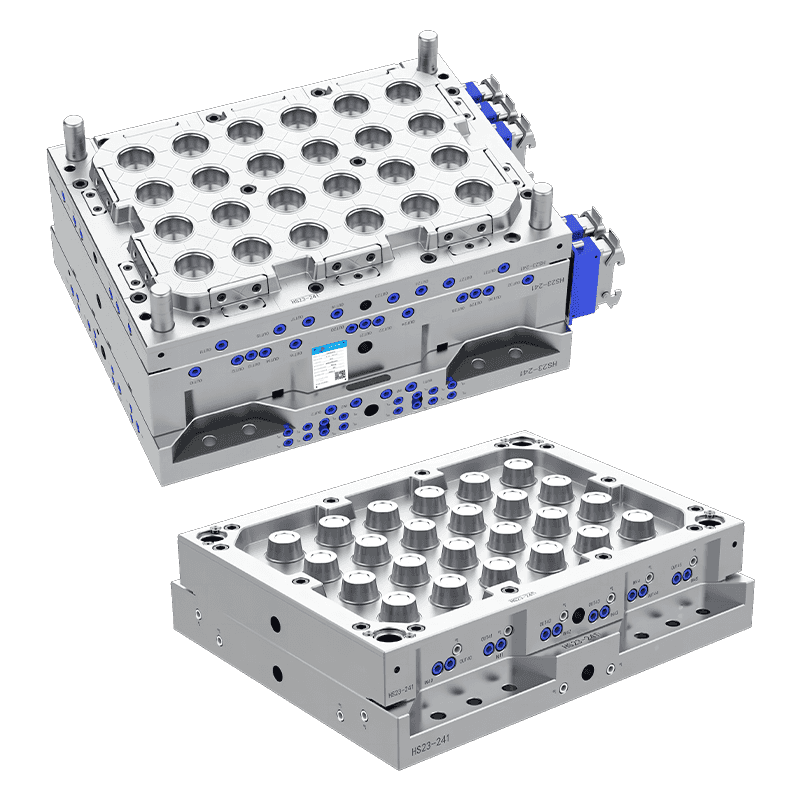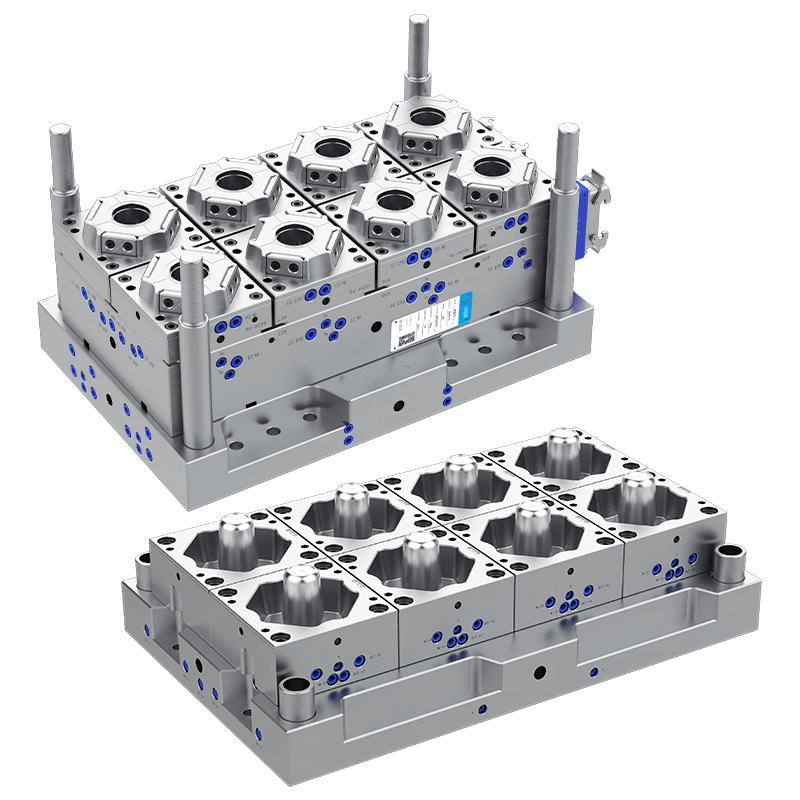Plastic Cup Molds: Understanding the Key Components
Plastic cup molds are specialized tools used in injection molding or blow molding processes to shape plastic into the desired form. These molds must be designed with precision to ensure the cups are formed correctly, with consistent quality and durability. Whether producing disposable cups for beverages or reusable ones for long-term use, the mold must be capable of withstanding high temperatures, pressure, and friction during the molding process.

The choice of material for the mold affects everything from cycle time to wear resistance, making it a critical factor in the manufacturing process. Let's take a closer look at the materials commonly used in the creation of plastic cup molds.
The material composition of a plastic cup mold is typically determined by factors such as the type of plastic used in the cups, the complexity of the mold design, and the required production volume. The common materials used for plastic cup molds are steel, aluminum, and bimetallic composites. Each material has its advantages and is chosen based on the specific needs of the molding process.
Steel is one of the popular materials for plastic cup molds due to its strength, durability, and heat resistance. Steel alloys, particularly P20, H13, and S7, are widely used in high-performance mold making because of their ability to withstand the heat and pressure typically found in injection molding processes.
P20 Steel: This is a widely used mold steel due to its balance of machinability, toughness, and heat resistance. P20 steel is often used in molds that require moderate to high-volume production, making it suitable for plastic cup molds.
H13 Steel: Known for its high heat resistance, H13 is often used in high-precision molds or molds that require a higher level of wear resistance. It can withstand extreme temperatures, which makes it ideal for molding plastics with higher melting points, such as polypropylene (PP) or polyethylene (PE).
S7 Steel: S7 is an air-hardening steel used in situations requiring higher impact resistance and shock load resistance. This makes it ideal for molds that are subjected to heavy-duty processes.
Steel molds are suited for long-term, high-volume production because they can last for many years without significant wear. However, they are also more expensive and take longer to manufacture compared to molds made from other materials like aluminum.
Aluminum is another popular choice for plastic cup molds, particularly for low-volume production runs or prototype testing. It is lightweight, cost-effective, and has good thermal conductivity, which helps reduce cycle times.
7075 Aluminum: This high-strength alloy is often used for molds that require good strength-to-weight ratios and corrosion resistance. Aluminum is easier to machine than steel, which allows for faster mold production and reduced lead times.
6061 Aluminum: Another common aluminum alloy, 6061 is used for less demanding molds. It offers good strength and corrosion resistance, making it suitable for medium-volume production of plastic cups.
The primary advantage of aluminum molds is their faster cooling rates, which reduce overall cycle time and improve efficiency in mass production. However, aluminum molds are more susceptible to wear and tear compared to steel molds, making them more suitable for short to medium production runs.
Bimetallic molds combine two different metals to take advantage of the strengths of both materials. Typically, these molds feature a steel base with an aluminum outer shell, combining the strength and heat resistance of steel with the lighter weight and thermal conductivity of aluminum. Bimetallic molds are becoming increasingly popular because they offer the better of both worlds: high performance and cost-effectiveness.
Bimetallic molds are often used in medium-volume production and for situations where a combination of strength and thermal management is needed. They are also advantageous in terms of reducing the overall weight of the mold, making them easier to handle during the manufacturing process.
Contact Us
Email: [email protected]; Or fill out the contact form below.

 English
English 中文简体
中文简体 русский
русский Español
Español Français
Français




